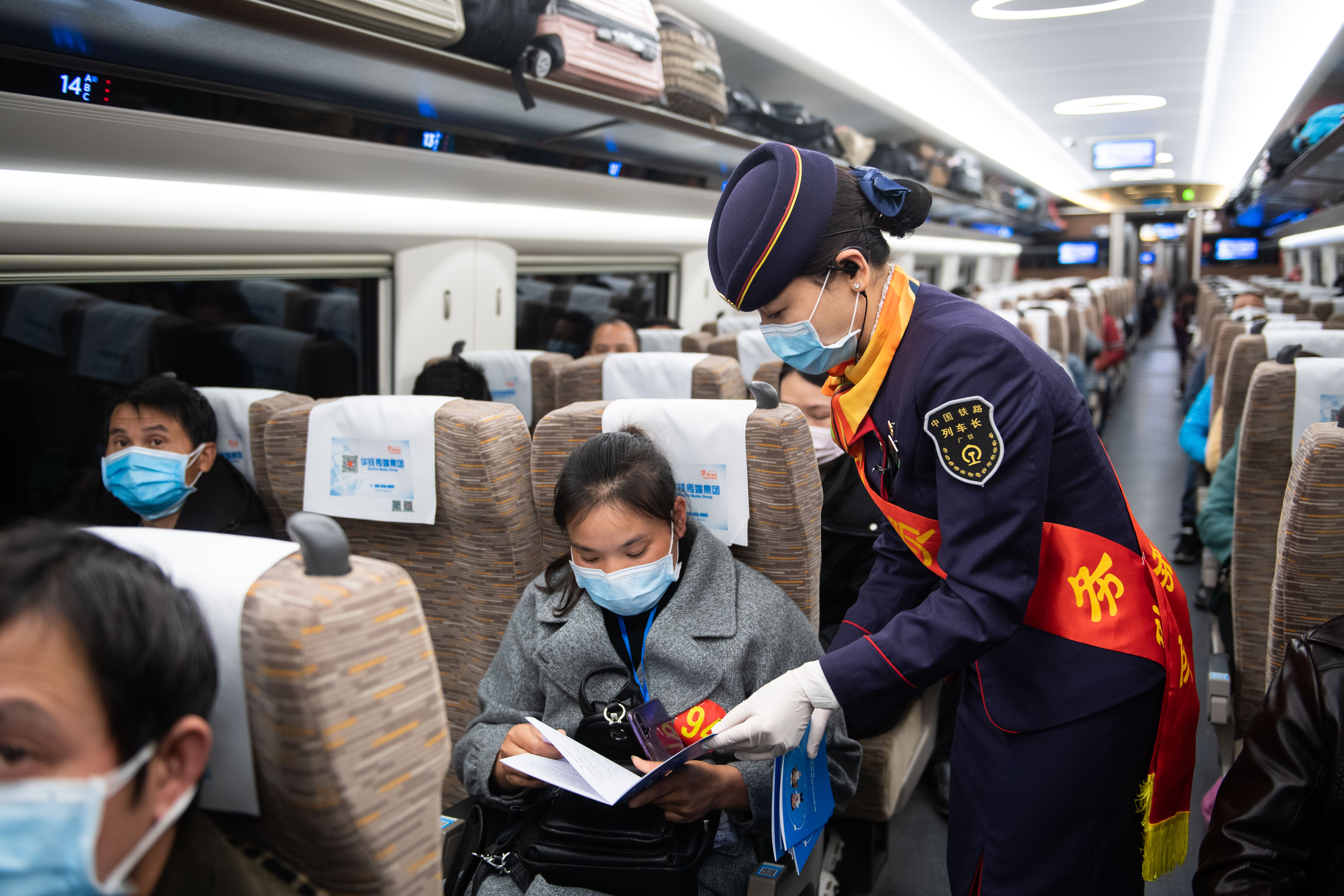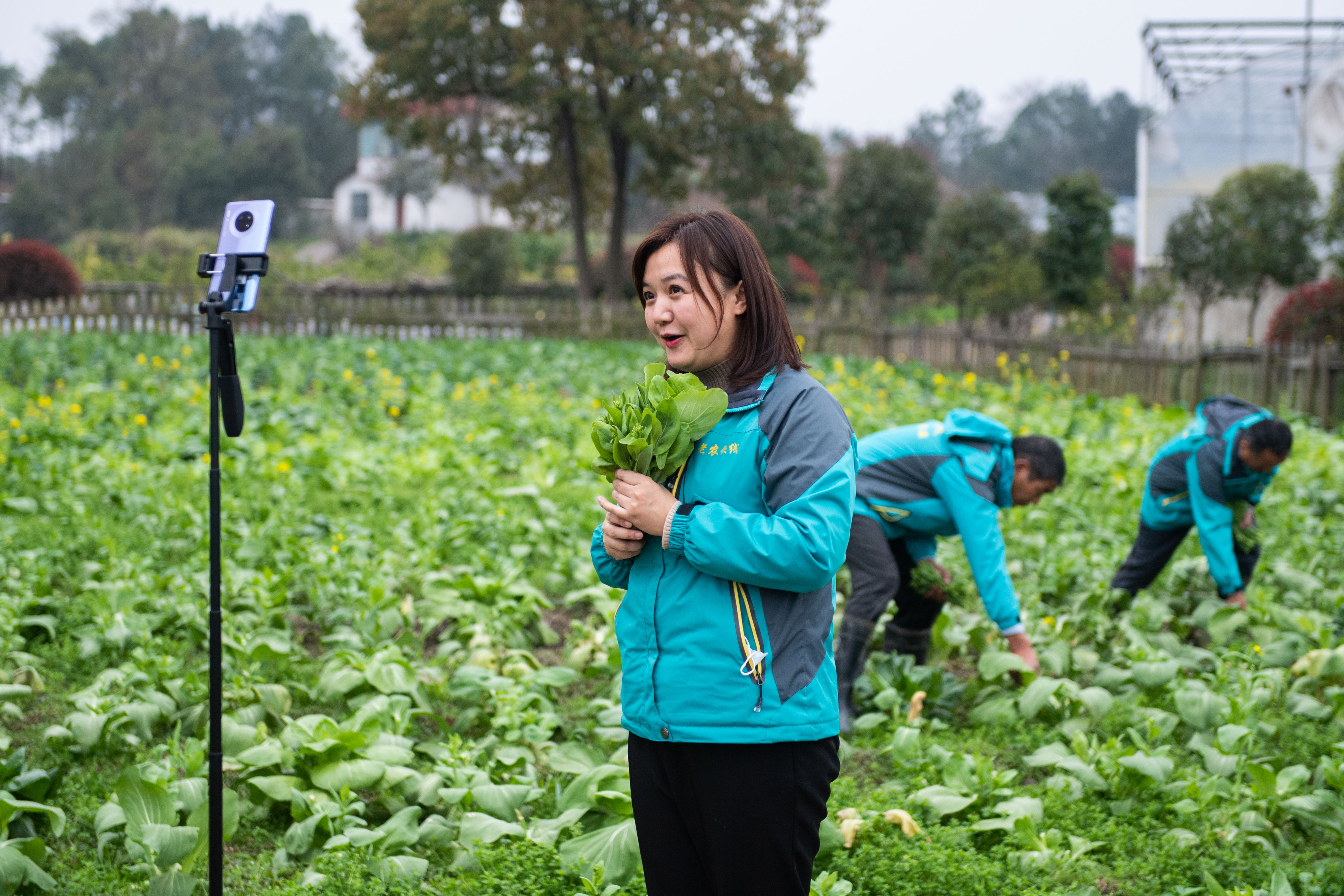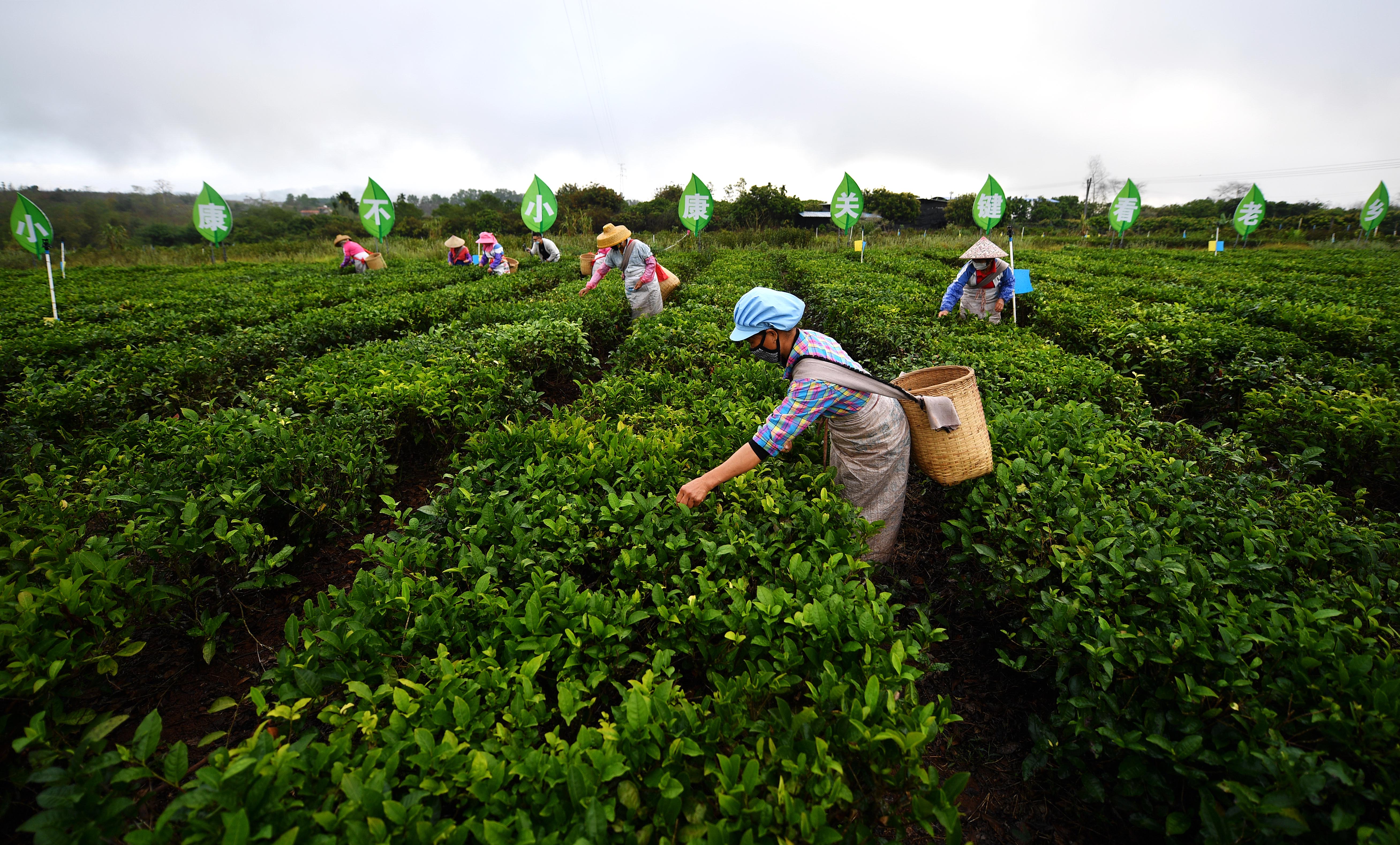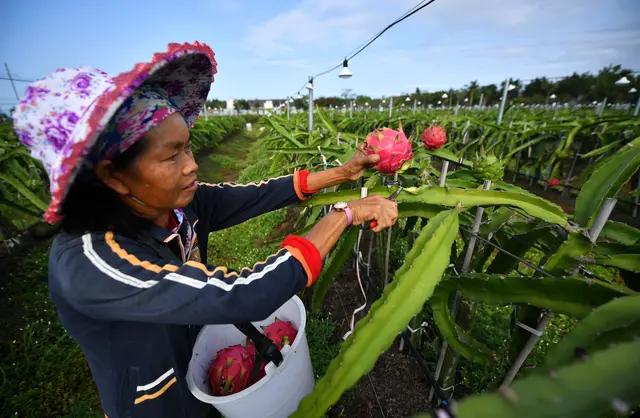As a screening personnel for epidemic prevention and control, Cai Yongquan has been on duty at his village entrance checkpoint every day since Feb. 9. His daily routine includes patrolling, disinfection and inspection.
The 50-year-old, who was temporarily recruited by the Longwei Village of Damao Township in the city of Wanning in south China's Hainan Province, got rid of poverty in 2017. He and his wife earned about 3,000 yuan (about 428 U.S. dollars) a month by doing odd jobs to make ends meet. Due to the novel coronavirus disease (COVID-19) outbreak, Cai was unable to go to work after the Spring Festival, resulting in no income for the family with three children.
To prevent him from returning to poverty, Cai was recommended to help with the screening work for epidemic prevention in his village.
"I can earn around 100 yuan per day from this job, which is enough for my family. I believe these difficulties are temporary, and we will go out to work when the outbreak ends," said Cai.
The year 2020 marks the deadline for China to eradicate absolute poverty. Yet the unexpected COVID-19 outbreak has added to difficulties in realizing the great goal.
Chinese President Xi Jinping has stressed overcoming the impact of COVID-19 to clinch a complete victory in the fight against poverty. He said that lifting all rural residents living below the current poverty line out of poverty by 2020 is a solemn promise made by the Communist Party of China Central Committee, and it must be fulfilled on time.
The country's poverty alleviation tasks are near completion, as the number of impoverished people fell to 5.51 million at the end of 2019 from 98.99 million at the end of 2012, said Liu Yongfu, director of the State Council Leading Group Office of Poverty Alleviation and Development last week.
The impact of the epidemic on poverty alleviation is mainly manifested in the impoverished population's returning to work, the sales of poverty alleviation products and the resumption of the poverty alleviation projects, according to Liu.
"The income from working outside is an important guarantee for poverty alleviation of those impoverished households. The epidemic will affect their incomes, or even lead those who had shaken off poverty back to the poor situation again," said Lu Fuxing, a researcher with the Academy of Social Sciences of central China's Hunan Province.
EFFORTS TO HELP WORK RESUMPTION
To assist the employment of the impoverished people, the Wanning city government in Hainan created 1,327 temporary public welfare posts for epidemic prevention, including disinfecting and guarding.
Apart from lifting the remaining 491 poverty-stricken people out of poverty this year, the island province still has to consolidate its achievements of the 640,000 people who had already shaken off poverty.
In addition to offering jobs for low-income families, many places in China also arranged shuttle buses, trains and even charter flights to transport impoverished workers from their rural hometowns back to work in big cities.
On Feb. 22, the first special train carried 791 workers left Huaihua, a city in central China's Hunan Province, heading for the small commodity hub of Yiwu, eastern China's Zhejiang Province. In the following some 20 days, the city government of Huaihua arranged 12 special trains, 1,701 shuttle buses to transport over 45,000 migrant workers back to work.
Zhang Hailian, working for the Hangzhou Star Shuaier Electric Appliance Co., Ltd. in Zhejiang, was among those migrant workers. "It's very convenient to take the shuttle bus directly from my hometown to the factory," said Zhang, whose current monthly income is about 6,000 yuan.
"We had strict identity information checks, health code checks and body temperature checks before getting on the shuttle bus, where we were also provided with food for free. It is very considerate," Zhang said.

A conductor answers a worker's questions on train G9628 from Loudi of central China's Hunan Province to Guangzhou of south China's Guangdong Province, Feb. 24, 2020. (Xinhua/Chen Sihan)
Xiang Huaxiu, who had been prevented from going out to work as a result of the outbreak, felt relief after selling all the fresh tea leaves picked in her tea garden to a local cooperative in the city of Jishou in Xiangxi Tujia and Miao Autonomous Prefecture, Hunan Province.
Xiang and her husband used to work outside to make a living for their poor household with six family members. Though the local government arranged a free shuttle bus for them to go back to work in cities, Xiang hesitated as she had to take care of the children during the special period.
As it was the good time for tea leaves picking in early spring, the city organized many impoverished residents like Xiang to work near their home, while encouraging the local tea enterprises and cooperatives to resume operation and sell products on online platforms.
Since the tea picking work started on Feb. 12, more than 40 cooperatives and tea enterprises in the city have participated in tea processing and production, with a comprehensive output value of 190 million yuan. Xiang got a wage of 1,300 yuan.
For those who can not return to their posts, China's Ministry of Commerce (MOC) has required that online training programs should be arranged.
About 3 million more migrant workers from the poverty-stricken areas have returned to their jobs in early March. One-third of the poverty-relief projects had resumed operation as of March 6, and resumption will be accelerated, according to Liu Yongfu.

Zhang Qin, an overseas returnee, presents a livestreaming of vegetable harvesting on an e-commerce platform she founded in Huitang Village of Huitang County, central China's Hunan Province, March 13, 2020. Livestreaming is expected to help boost sale amid the coronavirus outbreak.(Xinhua/Chen Sihan)
MEASURES TO BOOST SALES
Affected by the epidemic, the sales of agricultural products in many provinces have been hindered since the Spring Festival, which dealt a heavy blow on people who were struggling to bid farewell to poverty.
The MOC has called on the local commerce authorities to carry out brand promotional fairs and e-commerce training programs to smooth the sales channels for farm produce from poor areas.
"Our pineapples appear in markets from February to May every year, but due to the outbreak, the traditional sales market has been impeded. I hope to promote the sales online and help the farmers out," said Zhong Mingming, Party chief of the city of Wenchang, Hainan Province.
Zhong's one-hour live streaming on Feb. 24 attracted more than 750,000 audiences, helping sell out over 40,000 kg of pineapples worth more than 400,000 yuan.
Hainan also encouraged enterprises, organizations and warm-hearted people to purchase poverty alleviation products through both online and offline channels.

Farmers pick up tea leaves at a tea garden of a poverty alleviation demonstration base in Baisha Li Autonomous County, south China's Hainan Province, Feb. 27, 2020. (Xinhua/Guo Cheng)
In Hunan Province, the government-supported Happigo, a popular online shopping platform, developed a "cloud supermarket" for poverty relief. A farmer who registers on the mini-app could easily open an online store and start live streaming, which greatly boosted the sales of agricultural products.
So far, more than 3,000 local specialties from 611 farmer households have been on sale on the platform, covering 51 counties that have cast off poverty in the province.
The Happigo has also launched a new project based on cloud live streaming, which built a bridge between farmers and consumers with the mode of "cloud buying vegetables." The project has helped 38 poverty-stricken families in Changsha, capital of Hunan Province, sell 55,000 kg of vegetables.
As of March 5, a total of 242 poverty-stricken counties had shaken off poverty across the country, and 10 provinces and regions, including Hunan and Hainan, had lifted all impoverished counties out of poverty.
"We need to develop some short-term and fast-track projects to regain the lost time. We are confident of consolidating the achievements of poverty alleviation and completing the tasks on schedule," said Liu Yongfu.
(ASIA PACIFIC DAILY)
 简体中文
简体中文

